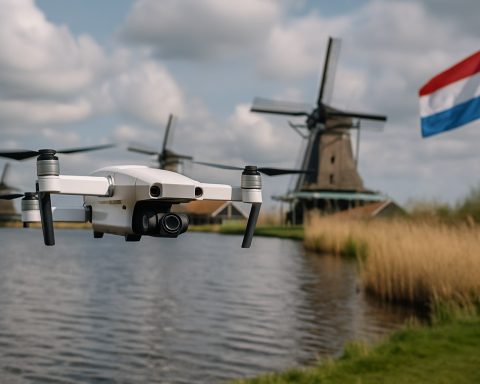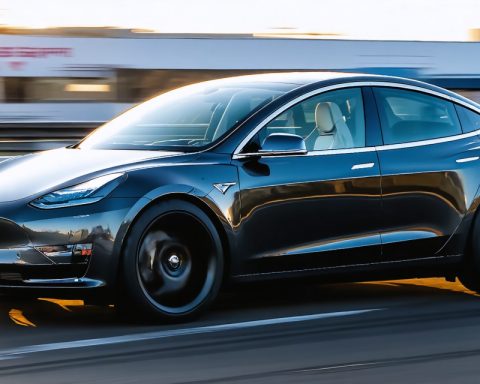Samsung’s New Galaxy S25 Aims for AI Brilliance
In an exciting announcement from Seoul, Samsung Electronics has revealed its latest flagship device, the Galaxy S25, which is designed to enhance user experience through advanced AI technologies and cutting-edge Qualcomm chips. This strategic launch comes as a response to the fierce competition posed by Apple and various Chinese smartphone makers in both the premium and entry-level markets.
Samsung’s new offering houses Google’s advanced Gemini AI model, paired with an updated version of Bixby, Samsung’s proprietary voice assistant. The integration of these AI platforms allows for a more tailored experience, enabling users to receive personalized suggestions, from news updates to environmental data in their homes.
Despite maintaining the price range between $799 and $1,299 for the S25 series, analysts express skepticism regarding the distinctiveness of Bixby as a selling point. While the AI features might draw interest, experts note that a clear “killer application” is necessary to entice consumers to switch brands.
Importantly, Samsung has opted to use the Qualcomm Snapdragon 8 Elite Mobile Platform exclusively, moving away from its own Exynos chips—a decision that raises questions about its internal chip production strategy. As Samsung speeds into the AI realm, the success of the Galaxy S25 is pivotal, especially as it navigates a saturated market where previous solutions like foldable phones face mounting challenges.
Broader Implications of Samsung’s AI-Driven Galaxy S25
Samsung’s launch of the Galaxy S25 marks a significant shift in the smartphone landscape, not just for the company but for the global tech ecosystem. The emphasis on AI integration reflects a larger trend where technology is increasingly personalized and interconnected—a movement poised to redefine how users interact with their devices.
As AI capabilities become more advanced, they hold the potential to influence diverse aspects of society and culture. Personalized user experiences may enhance digital engagements, leading individuals to expect more from their devices in terms of quick, tailored responses and insights. This expectation can propel innovations in various sectors, including education, healthcare, and entertainment, where personalized AI solutions can significantly improve user experience and service delivery.
The switch to Qualcomm’s Snapdragon 8 Elite Mobile Platform signals an industrial shift that may reverberate beyond Samsung. As companies look to optimize performance through collaboration, it could lead to greater reliance on third-party chip suppliers. This trend could reshape the global economy, striking a balance in the competitive landscape among smartphone manufacturers and affecting supply chains.
Moreover, the focus on smarter devices presents potential environmental implications. By enhancing device efficiency and performance through AI, manufacturers like Samsung may contribute to reducing electronic waste and energy consumption. However, as AI-driven technologies rely on vast data centers and energy, the paradox of minimizing ecological footprints while maximizing digital consumption is crucial for sustainable progress.
In the long run, the Galaxy S25 not only highlights Samsung’s strategic intentions but also serves as a bellwether for the future of technology, where AI’s role becomes increasingly central to innovation, competition, and the consumer experience.
Samsung Galaxy S25: Revolutionizing AI Integration in Smartphones
Introduction
Samsung’s introduction of the Galaxy S25 marks a significant milestone in the evolution of smartphones, particularly with its focus on integrating advanced AI technologies to enhance user experience. As the tech giant prepares to face stiff competition from Apple and various Chinese manufacturers, this new flagship model promises innovative features while maintaining a competitive price range.
Key Features of the Galaxy S25
1. AI-Powered User Experience:
The Galaxy S25 incorporates Google’s Gemini AI model, which works in conjunction with an upgraded version of Samsung’s Bixby assistant. This integration aims to provide personalized recommendations and smart home management capabilities, offering users real-time updates and insights.
2. Exclusive Qualcomm Snapdragon Chipset:
For the first time, the Galaxy S25 will utilize the Qualcomm Snapdragon 8 Elite Mobile Platform exclusively, marking a strategic pivot from Samsung’s own Exynos chips. This move not only enhances processing power but also aligns the device with the latest technological advancements in mobile chip development.
3. Enhanced Camera Features:
The Galaxy S25 includes improvements in its camera technology, utilizing machine learning to enhance photo-taking capabilities, with features such as automatic scene recognition, improved night mode functionality, and advanced video stabilization.
4. Sustainability Efforts:
Samsung is placing a focus on sustainability with the S25, utilizing eco-friendly materials for its packaging and device components. This initiative aligns with the growing consumer demand for sustainable technology.
Pricing and Market Positioning
The Galaxy S25 series is set within a pricing framework of $799 to $1,299, positioning it as a premium device while still being accessible to a broader audience. Analysts note that, despite its features, the success of the device will heavily depend on its market reception and the appeal of its AI functionalities.
Pros and Cons
Pros:
– Advanced AI features with Gemini and Bixby integration.
– High-performance Snapdragon 8 Elite Mobile Platform.
– Enhanced camera technology with machine learning capabilities.
– Commitment to sustainability with eco-friendly materials.
Cons:
– Price point may deter some potential buyers facing economic challenges.
– Skepticism regarding the uniqueness of Bixby’s offerings in comparison to competitors.
– Shifting away from Exynos chips may impact brand loyalty and internal chip development.
Use Cases
– Personal Assistant: The improved Bixby assistant can help manage daily tasks, provide news updates, and control smart home devices seamlessly.
– Content Creation: Enhanced camera capabilities are perfect for social media influencers and content creators who seek high-quality visuals on the go.
– Gaming and Entertainment: The powerful Snapdragon chipset supports mobile gamers, enabling graphics-intensive games and smooth streaming experiences.
Market Trends and Predictions
As Samsung continues to innovate, analysts predict that the Galaxy S25 could redefine consumer expectations for smartphone AI integration. If successful, this could lead to an increased emphasis on AI within the entire smartphone market, prompting competitors to enhance their technology. The shift towards sustainability also reflects broader trends in consumer behavior where environmentally friendly practices will be paramount for brand selection.
Conclusion
With the Galaxy S25, Samsung aims to not only retain its market share against fierce competition but also to set a new standard in mobile technology through AI integration and improved user experiences. As the smartphone landscape evolves, Samsung’s commitment to innovation and sustainability may well position it as a leader in the next generation of mobile devices.
For more information about Samsung’s latest innovations and developments, visit their main website at Samsung.















